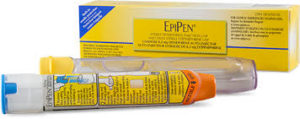Pharmaceutical companies Mylan Inc. and Mylan Specialty will pay $465 million to resolve claims that they violated the False Claims Act by knowingly misclassifying EpiPen as a generic drug to avoid paying rebates owed primarily to Medicaid.
Mylan Inc. and Mylan Specialty L.P. are both wholly owned subsidiaries of Mylan N.V., which is headquartered in Canonsburg, Pennsylvania.
Mylan was represented by Mitchell Zamoff of Hogan Lovells in Minneapolis.
One of the whistleblowers, Sanofi, was represented by Robert Thomas and Suzanne Durrell of Thomas Durrell in Boston.
The other whistleblower, Ven-A-Care, was represented by James Breen of Atlanta.
“Mylan misclassified its brand name drug, EpiPen, to profit at the expense of the Medicaid program,” said United States Attorney William D. Weinreb. “Taxpayers rightly expect companies like Mylan that receive payments from taxpayer-funded programs to scrupulously follow the rules. We will continue to protect the integrity of Medicaid and ensure a level playing field for pharmaceutical companies. ”
Congress enacted the Medicaid Drug Rebate Program to ensure that state Medicaid programs were not susceptible to price gouging by manufacturers of drugs that were available from only a single source.
It therefore subjected such single-source, or brand name drugs, to a higher rebate that is payable to Medicaid and that increases to the extent the price of the drug outpaces the rate of inflation. In contrast, generic drugs originating from multiple manufacturers are subject to lower rebates that, at least until recently, were not subject to inflationary adjustments.
The settlement resolves the government’s allegations that Mylan, by erroneously reporting EpiPen as a generic drug to Medicaid despite the absence of any therapeutically equivalent drugs, was able to demand massive price increases in the private market while avoiding its corresponding rebate obligations to Medicaid.
Between 2010 and 2016, Mylan increased the price of EpiPen by approximately 400 percent yet paid only a fixed 13 percent rebate to Medicaid during the same period.
The Justice Department alleged that although Mylan was well-aware that its drug was not a generic, it nevertheless claimed generic status for EpiPen in the Medicaid program to avoid paying a higher rebate.
The settlement resolves allegations brought in a lawsuit filed under the whistleblower provisions of the False Claims Act, which permits private parties to sue on behalf of the government for false claims for government funds and to receive a share of any recovery.
One of the whistleblowers in this case was the pharmaceutical manufacturer, Sanofi-Aventis US.
It will receive approximately $38.7 million as its share of the federal recovery.
Mylan has also entered into a corporate integrity agreement with the Department of Health and Human Services Office of Inspector General (HHS-OIG) that requires, among other things, an independent review organization to annually review multiple aspects of Mylan’s practices relating to the Medicaid drug rebate program.
